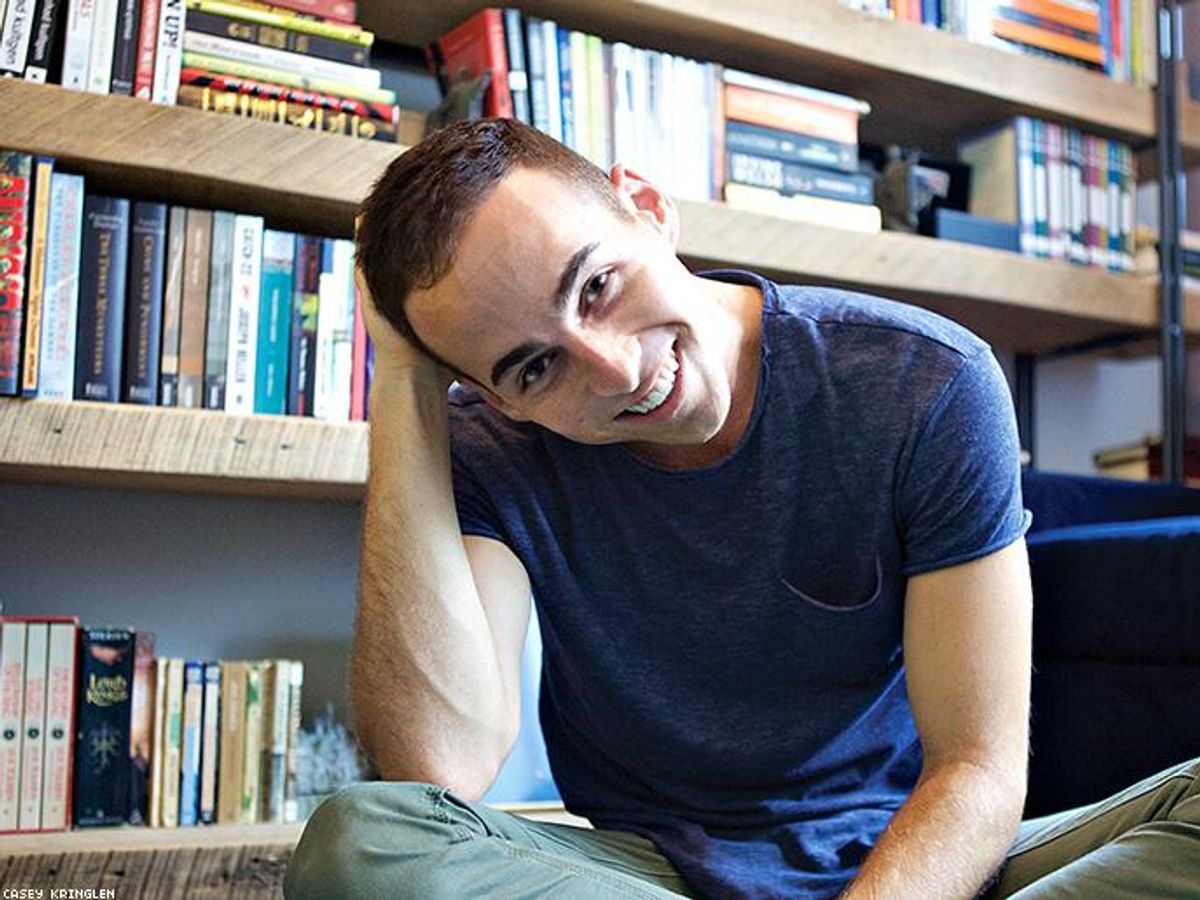The overused term "overnight success" is supremely apt in the case of Jeffrey Masters, host and creator of the hit podcast LGBTQ&A. In just a few short months, it has become one of the most downloaded queer podcasts on iTunes.
The New York Times cited LGBTQ&A as one of the best podcasts to listen to while driving in your car, saying of Masters, "His interest in his guests' stories, as well as his encouraging manner, allows him to get beyond the surface, whether he's interviewing activists or members of the entertainment industry." Not bad for a kid who started his career performing free Shakespeare in a Long Beach, Calif., park.
If you ask Masters, however, he'll credit the success of his podcast not only to preparation, but also a shared interest that many LGBT people have in hearing stories directly from those who are living them. After all, that was the catalyst for creating LGBTQ&A in the first place.
"I was thinking about all of the progress that's been made over the last 50- plus years and realized that so many important people--some of the most important people in LGBTQ history--are still alive today," Masters reflects. "I love podcasts and think there's something really special about only hearing a person's voice. So, after hunting around for a podcast like this and not finding one, I decided to create it."
Episodes highlight diversity in the LGBT community overall, aiming to go beyond the recurring "coming out or transition stories," and instead "get to know each person, their defining moments, their accomplishments, and how they got to where they are today."
LGBTQ&A has featured guests like Asia Kate Dillon, the first nonbinary actor on television; Cleve Jones, inspiration for ABC's When We Rise and protege of Harvey Milk; TV personality Ross Mathews; author and cochair at GLAAD Jennifer Finney Boylan; and bisexual actor (and Advocate cover star) Nico Tortorella, among others.
"[LGBTQ people] are so underrepresented in the media," Masters explains. "It's easy for us to be seen as a monolith with a single set of experiences. This then filters down into the consciousness of other LGBTQ people and can make us feel like we're not being the 'right kind of gay' or the 'right kind of trans person,' when in actuality, there is no right or wrong way to be queer or trans."
Giving the times that we're in--a clear backtrack of progress from the Trump administration and continuous outcry for LGBT acceptance across the world--Masters knows all too well how important it is for LGBT stories to be heard.
"There are still a lot of misconceptions about LGBTQ people, and though we've made tremendous progress, it's still unsafe for large parts of our community," he explains. "40 percent of homeless youth are LGBTQ. People still get freaked out about bisexuality. Trans women of color are one of the most marginalized groups in America. The only time that we hear about a trans person in the news cannot [continue to] be when something bad happens. I'm trying to document the stories of our entire community--lives as they're being lived and as the world is changing."
As the podcast continues to grow in popularity, and countless of LGBT influencers are paying attention, Masters he has yet to interview one of his dream guests: trans author, playwright, and performance artist Kate Bornstein, who he says, "is high on my dream list of people I want to interview. Her work has been revolutionary in terms of the public's understanding of gender, and on a personal note, her writing's really been transformative for me in my life."
In addition to doing more research into Stonewall-era LGBT people and trying to document their stories, Masters is also working on a book version of the podcast "so that there's some sort of written record" of these unforgettable LGBT stories.
LGBTQ&A can be listened to free on iTunes. To learn more about the podcast, visitLGBTQpodcast.com.




















































































